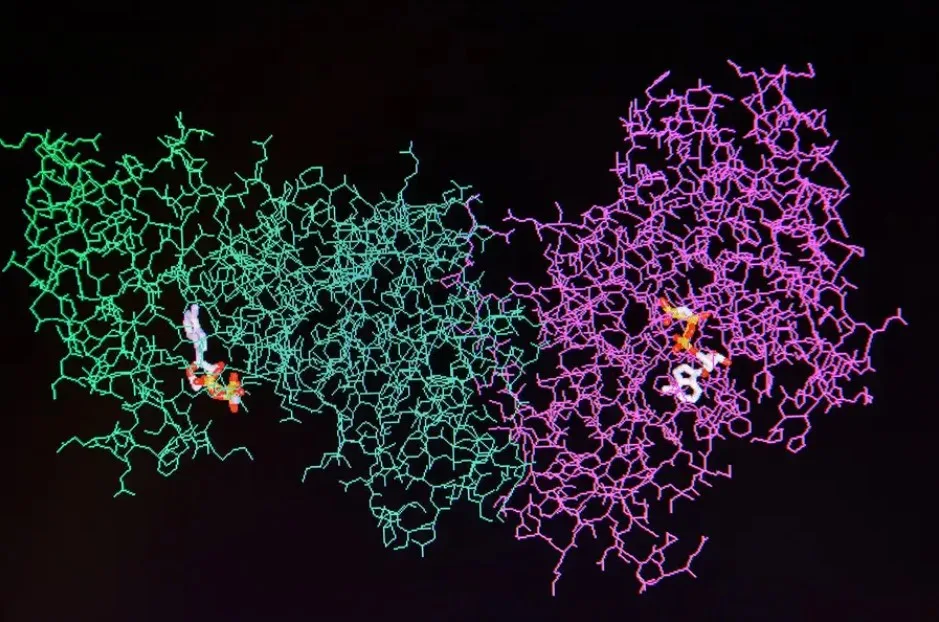TL;DR:
- Protein shells are used in vaccines to encapsulate molecules that induce an immune response in the body.
- AI-designed protein shells have the potential to make vaccines more effective due to the precision of the design process.
- The AI-designed shells were found to be dense than previously created shells, resulting in a statistically significant increase in the immune response in mice.
- The AI-designed shells have the potential to be used in gene therapy to avoid adverse reactions from the patient’s cells.
- The study highlights the potential of AI to revolutionize the field of vaccine development.
Main AI News:
Revolutionizing Vaccine Development through AI-Crafted Protein Shells
Viruses’ genetic material is enclosed in protein shells, and similar shells created in the lab are utilized in vaccines as a means of encapsulating molecules that stimulate an immune response in the body. The chemical and biological traits of these artificially made shells rely on their construction, with even minor imperfections leading to instability and unpredictable reactions within cells, reducing their efficacy.
Isaac Lutz and his team at the University of Washington in Seattle set out to explore the potential of artificial intelligence in enhancing the precision of shell design and creation. The researchers fed AI the desired properties, such as size and porosity, of the shell. Utilizing reinforcement learning – the same process AI systems employ to learn through trial and error – the AI combined, folded, and intertwined small protein structures known as alpha helices into 20-sided shells, continuously checking for desired properties.
After the AI designed hundreds of thousands of shells, the team synthesized approximately 350 in the lab. Upon examination under an electron microscope, the researchers discovered that the AI had created shells with unprecedented density, attributed to the utilization of smaller building blocks that fit together more snugly than larger protein structures used in previous approaches.
Lutz likened the development to upgrading from limited protein Legos to custom-designed building blocks, saying, “We can now specify what we want to build, and the AI designs and connects the exact Legos needed to achieve that.”
Boosting Vaccine Efficacy with AI-Designed Protein Shells
To evaluate the impact of high density on the shells’ applications in living cells, the research team infused the shells with various molecules and introduced them into mice. In a noteworthy experiment involving molecules that activate the production of influenza antibodies, the AI-designed shells generated a modest yet statistically significant increase in the immune response compared to some conventional vaccine candidates undergoing clinical trials. Lutz attributes this to the AI method’s precision, ensuring each molecule is precisely positioned on the shell with adequate structural support to accommodate multiple molecules.
Martin Noble at Newcastle University in the UK praised the team’s achievement, stating, “It’s remarkable that the team could achieve this, as evolution takes billions of years to design a single protein that folds correctly, but this is a new level of complexity, folding proteins to fit together so well and form closed structures.”
Yang Zhang at the University of Michigan also highlights the potential of AI-designed protein shells in gene therapy, where genetic material could be encapsulated in a shell tailored to avoid adverse reactions from the patient’s cells.
This study demonstrates the potential of AI to revolutionize the field of vaccine development, paving the way for more effective and targeted treatments.

Protein shells designed using AI had no imperfections. Source: Shutterstock/Sergei Drozd
Conlcusion:
The recent research on the development of AI-designed protein shells has the potential to significantly impact the market for vaccines and gene therapy. The precision of the AI design process has resulted in shells with unprecedented density, leading to a statistically significant increase in the immune response in mice.
The study highlights the potential of AI to revolutionize the field of vaccine development, providing more effective and targeted treatments for patients. This breakthrough could lead to significant growth opportunities for companies in the pharmaceutical and biotechnology industries, as well as improved health outcomes for patients.

